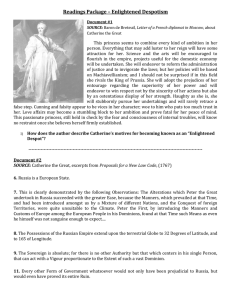The Virginia Declaration of Rights
advertisement
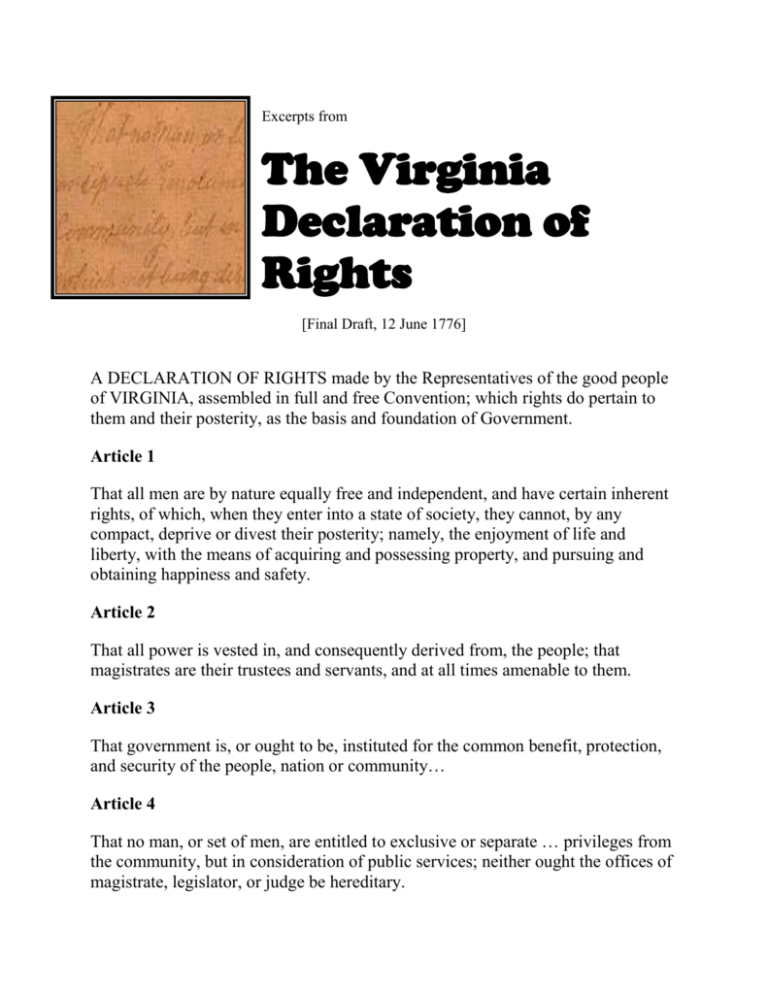
Excerpts from The Virginia Declaration of Rights [Final Draft, 12 June 1776] A DECLARATION OF RIGHTS made by the Representatives of the good people of VIRGINIA, assembled in full and free Convention; which rights do pertain to them and their posterity, as the basis and foundation of Government. Article 1 That all men are by nature equally free and independent, and have certain inherent rights, of which, when they enter into a state of society, they cannot, by any compact, deprive or divest their posterity; namely, the enjoyment of life and liberty, with the means of acquiring and possessing property, and pursuing and obtaining happiness and safety. Article 2 That all power is vested in, and consequently derived from, the people; that magistrates are their trustees and servants, and at all times amenable to them. Article 3 That government is, or ought to be, instituted for the common benefit, protection, and security of the people, nation or community… Article 4 That no man, or set of men, are entitled to exclusive or separate … privileges from the community, but in consideration of public services; neither ought the offices of magistrate, legislator, or judge be hereditary. Article 5 That the legislative and executive powers of the state should be separate and distinct from the judicative… Article 6 That elections of members to serve as representatives of the people in assembly ought to be free… Article 7 That all power of suspending laws, or the execution of laws, by any authority without consent of the representatives of the people is injurious to their rights and ought not to be exercised. Article 8 That in all capital or criminal prosecutions a man hath a right to demand the cause and nature of his accusation to be confronted with the accusers and witnesses, to call for evidence in his favor, and to a speedy trial by an impartial jury of his vicinage, without whose unanimous consent he cannot be found guilty… Article 9 That excessive bail ought not to be required, nor excessive fines imposed; nor cruel and unusual punishments inflicted. Article 10 That general warrants, whereby any officer or messenger may be commanded to search suspected places without evidence of a fact committed… Article 11 That in controversies respecting property and in suits between man and man, the ancient trial by jury is preferable to any other and ought to be held sacred. Article 12 That the freedom of the press is one of the greatest bulwarks of liberty and can never be restrained but by despotic governments. Article 13 That a well regulated militia, composed of the body of the people, trained to arms, is the proper, natural, and safe defense of a free state; that standing armies, in time of peace, should be avoided as dangerous to liberty; and that, in all cases, the military should be under strict subordination to, and be governed by, the civil power. Article 14 That the people have a right to uniform government; and therefore, that no government separate from, or independent of, the government of Virginia, ought to be erected or established within the limits thereof. Article 15 That no free government, or the blessings of liberty, can be preserved to any people but by a firm adherence to justice, moderation, temperance, frugality, and virtue and by frequent recurrence to fundamental principles. Article 16 That religion, or the duty which we owe to our Creator and the manner of discharging it, can be directed by reason and conviction, not by force or violence; and therefore, all men are equally entitled to the free exercise of religion, according to the dictates of conscience; and that it is the mutual duty of all to practice Christian forbearance, love, and charity towards each other. Adopted unanimously June 12, 1776 Virginia Convention of Delegates
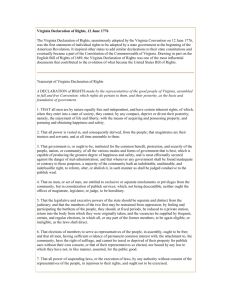
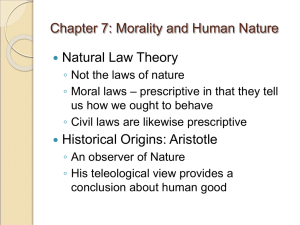

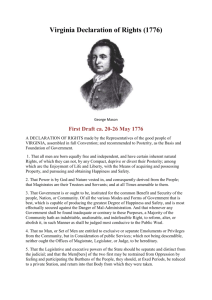
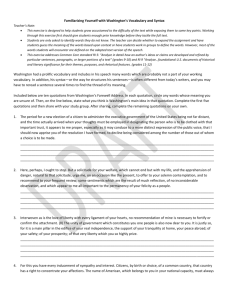
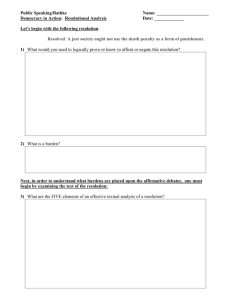
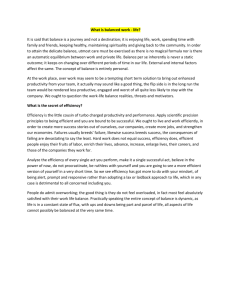
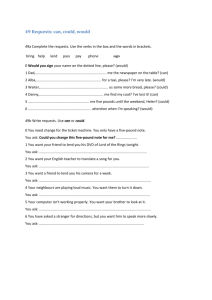
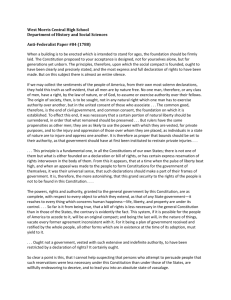
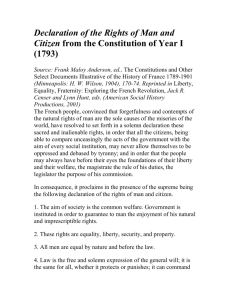
![13 Representation [Volume 1, Page 391] CHAPTER 13|Document 7](http://s3.studylib.net/store/data/007757896_2-6efca473d4611dd9010454bb7ac606ec-300x300.png)
